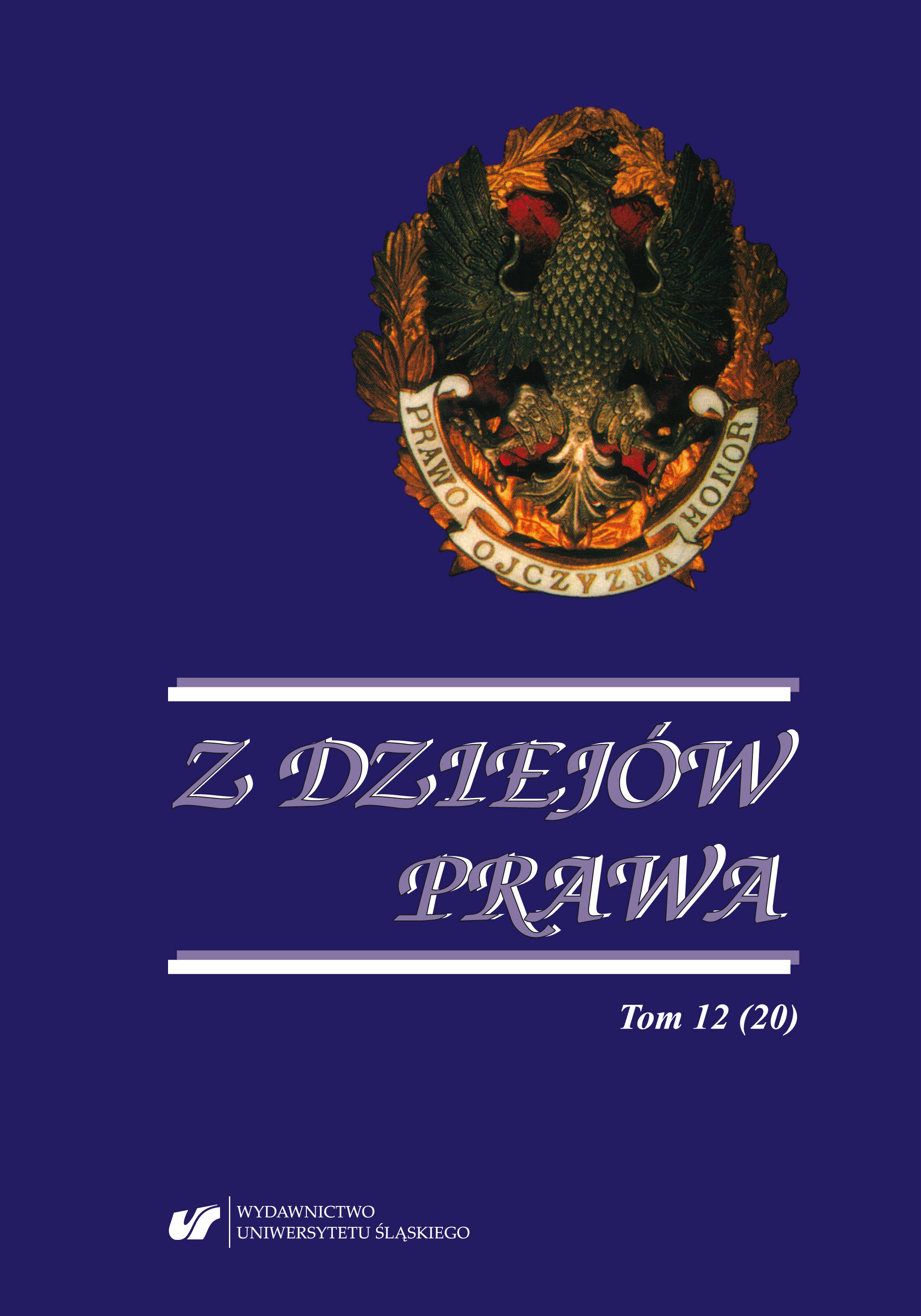Założenia polityczno-kryminalne kodeksu karnego z 1969 r. i ich realizacja w praktyce w latach 1970—1980
Political and criminal assumptions of the Penal Code of 1969 and their implementation in practice in the years 1970—1980
Author(s): Mirosława MeleziniSubject(s): Law, Constitution, Jurisprudence
Published by: Wydawnictwo Uniwersytetu Śląskiego
Keywords: Penal Code of 1969; judicial practice; imprisonment; polarisation of responsibility; penal policy; prison population
Summary/Abstract: The subject of discussion is the issue of the implementation of political and criminal assumptions of the Criminal Code of 1969 in the practice of the justice system in the years 1970—1980. The starting point of the analysis are the basic ideas concerning criminal policy adopted by the Criminal Code of 1969, i.e. stratification of crimes and polarisation of criminal responsibility, and the related striving to limit the scope of short-term imprisonment. In this context, in further considerations, statutory solutions — which were to implement the assumptions adopted by the Criminal Code — have been discussed, and an important role in shaping current criminal policy of the guidelines for the judiciary and judicial practice, adopted by the Supreme Court, has been pointed out. The findings have served as a basis for the confrontation of political and criminal assumptions of the Penal Code of 1969 with judicial practice. For this purpose, findings have been made concerning the structure of the measures of penal reaction adjudicated for crimes prosecuted by public indictment in the years 1970—1980, the dimension of absolute imprisonment in 1970, 1975 and 1980, and the effects of the penal policy implemented in the form of the size of the prison population in the years 1970—1980. The presented picture of the practices has allowed to formulate several conclusions. It has turned out that the idea of polarisation of liability and the related aspiration to significantly reduce the use of absolute imprisonment for non-custodian penalties was not achieved, and as a result of elimination of the shortest penalties (up to 3 months) and limitation of the use of short-term imprisonment penalties, the sentences imposed were significantly extended. The result of the conducted penal policy was a very significant size of the prison population, which confirmed that the penal policy was excessively repressive.
Journal: Z Dziejów Prawa
- Issue Year: 20/2019
- Issue No: 12
- Page Range: 895-912
- Page Count: 18
- Language: Polish

